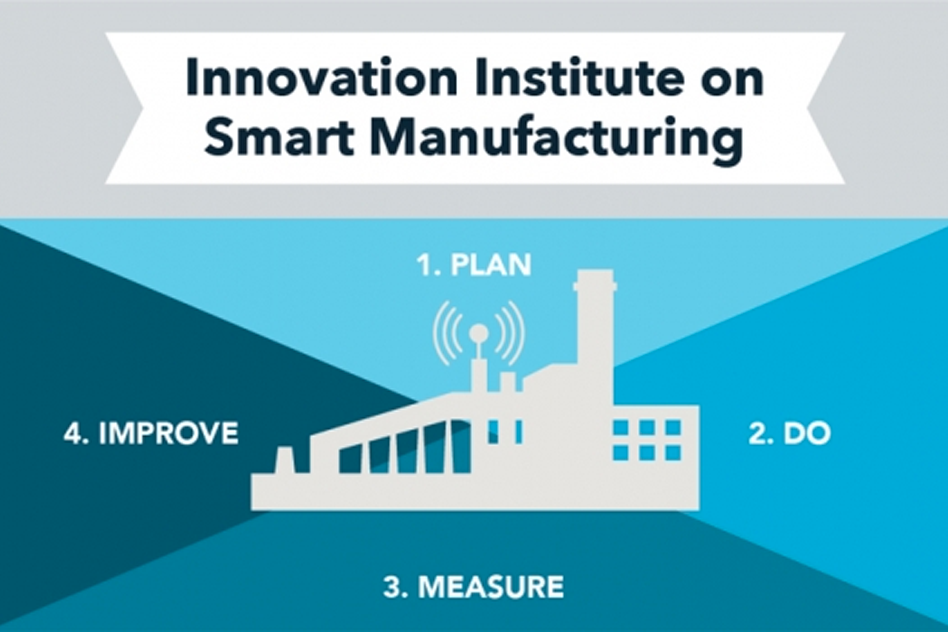
CAMBRIDGE, MA – The MIT Energy Initiative (MITEI) will share faculty expertise in clean energy innovation as an academic and research collaborator in the Smart Manufacturing Leadership Coalition (SMLC), which President Barack Obama announced last week will lead the new Smart Manufacturing Innovation Institute to develop smart technologies and systems for use in advanced manufacturing with $70 million in support from the U.S. Department of Energy and $140 million in public-private investment.
The coalition, headquartered in Los Angeles, brings together a consortium of nearly 200 partners from across academia, industry, and nonprofits—hailing from more than 30 states—to spur advances in smart sensors and digital process controls that can radically improve the efficiency of U.S. advanced manufacturing.
“In the transition to a low-carbon energy future, increasing efficiency and reducing the carbon footprint of the U.S. advanced manufacturing sector will be essential. MIT faculty approach energy innovation from a wide range of disciplines, collaborating with each other as well as industry and government to solve complex energy and climate challenges like those presented by the manufacturing sector,” said Robert C. Armstrong, director of MITEI. “We are delighted that President Obama selected the Smart Manufacturing Leadership Coalition to lead this important new institute and dramatically increase efficiency in the U.S. advanced manufacturing sector, and we are honored to be part of this collaborative effort.”
“Working with the impressive team that the SMLC has assembled, we look forward to contributing MIT faculty research in areas including data analytics, control systems engineering, mathematical modeling, dynamic simulation, and optimization of complex manufacturing systems,” said Richard D. Braatz, Edwin R. Gilliland Professor of Chemical Engineering, who manages MITEI’s collaborations with the SMLC and the Institute.
MITEI—MIT’s energy hub for multidisciplinary research, education, and outreach—will house activities for the Institute’s involvement in the coalition. MIT researchers will collaborate with software and manufacturing companies based in Massachusetts, many of which were launched and have grown using technology developed at MIT.
The Institute will have five networked regional centers, with MITEI as a collaborator of the Northeast regional center. The national network will work across business, workforce, and technical focus areas, leveraging each region’s unique environments. The Institute will accelerate the development and adoption of advanced sensors, data analytics, and controls in manufacturing, while reducing the cost of these technologies by half and radically improving efficiency. It will also facilitate opportunities for manufacturers of all sizes, with new and unprecedented access to smart tools, innovation, and the ability to grow their businesses.
The Smart Manufacturing Innovation Institute is the third Energy Department-funded facility as part of President Obama’s National Network for Manufacturing Innovation (NNMI) institutes. Each manufacturing institute is a private-public partnership that serves as a regional hub, bridging the gap between applied research and product development by bringing together federal agencies, companies, universities, and other academic and training institutions to co-invest in key technology areas that encourage investment and production in the U.S.
Learn more:
· Access DOE Smart Manufacturing Innovation Video
· Access the White House Fact Sheet
Contact:
Emily Dahl, edahl@mit.edu, 617-253-3411
Professor Richard D. Braatz, braatz@mit.edu
Julie Tran, Smart Manufacturing Leadership Coalition (SMLC), DOESmartMfg@gmail.com
About the MIT Energy Initiative
The MIT Energy Initiative is MIT’s hub for multidisciplinary energy research, education, and outreach. Through these three pillars, MITEI helps develop the technologies and solutions that will deliver clean, affordable, and plentiful sources of energy. Founded in 2006, MITEI’s mission is to advance solutions that will efficiently meet growing global energy needs while minimizing environmental impacts, dramatically reducing greenhouse gas emissions, and mitigating climate change. MITEI engages with industry and government through its Low-Carbon Energy Centers, broad partnerships with industry and government, and other consortium initiatives. Additional information is available at energy.mit.edu.